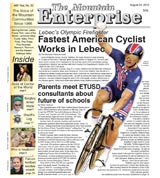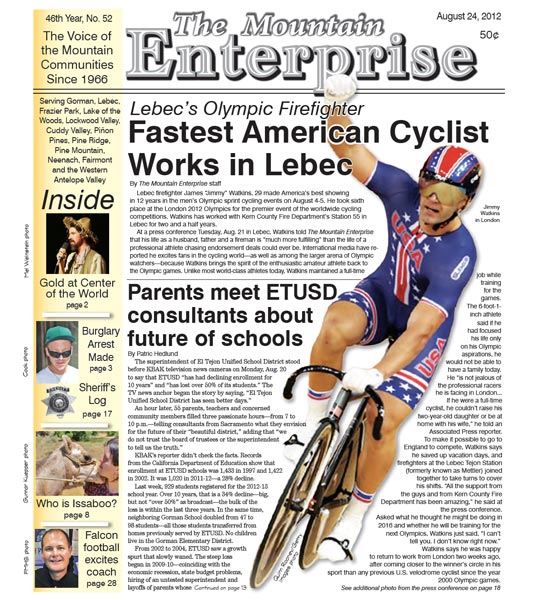We need our local boards, but will they learn to follow the law? By Gary Meyer, Publisher The Mountain Enterprise
We need our local water board and school board members, and we need the services their agencies provide. The late hours and concern given by our mountain’s elected volunteer board members help solve endless problems, especially in an economy still trying to recover after a housing crash more than four years ago.
But a poor economy, late hours and the need to be super-efficient with dwindling public resources make it all the more important that board members and administrators follow the laws that form the basis of trust between public agencies and the citizens they serve.
Last week the Lebec County Water District (LCWD) Board responded to criticism from the Kern County Grand Jury by rejecting nearly all recommendations in two grand jury reports. Instead, they cast blame on a former board. When asked by this newspaper to provide a copy of their written response—as if to demonstrate the problems described in the report itself—the LCWD board said they would not release it.
The fact is that boards are required under Government Code Section 54957.5 (the Ralph M. Brown Act) to release all documents and writings to the public if they have been received by a majority of board members. A few exemptions exist under the California Public Records Act, but those did not apply in this situation. Ironically, it was a grand jury member who told them not to release their response until the grand jury’s presiding judge had seen the letter. But there is no legal provision for boards to withhold documents until seen by a judge.
The next day the grand jury quickly acknowledged its error and recommended to LCWD that it release the documents, which it did—but two days after the original request. The delay resulted in this newspaper not being able to report LCWD’s response to the public last week. [See below for a report on LCWD’s responset o the grand jury’s report, and see all the documents online, in Community FYI at right .]
Another wayward board—El Tejon Unified School District (ETUSD)— has been rude to the public and then tried to demonstrate they control the media, first by demanding there be no flash photography during public meetings (because the superintendent claims she is bothered by the flash), and then by declaring the media shall stay confined within a designated area of the room. As a last-ditch effort to demonstrate dominance, they refused to even start the August 8 meeting unless the quietly law-abiding media would follow their orders—which it did not. [See last week’s comment.]
As if ETUSD and LCWD had been whispering to one another about strategies to reign in reporters who are too observant, LCWD director Julie McWhorter began claiming in June that the photographic flash “bothers my eyes.” She had signs posted in the water company’s meeting room saying flash photography is not allowed.
The Mountain Enterprise would like to make something very clear.
- We take our job seriously. We also take the laws which support us in doing our job very seriously.
- We will not relinquish our legal rights to report as we see fit during public meetings.
- There is nothing under state or federal law that supports the demands of either of these agencies to restrict our photography— or anyone else’s—unless an actual and persistent disruption of their meetings is created, which we have never done.
- They have disrupted their own meetings. We have not.
- Seeking elected office or receiving a paycheck as a superintendent of a school district come with legal obligations—including the responsibility to appear in public meetings where reporters work on behalf of the public. We reject these misguided attempts to dictate how reporters should work.
- Elected public agency directors need to understand the law and to follow it. Demands that the public (which includes the media) shed their rights, one by one, are misguided, dangerous and wrong.
This is part of the August 24, 2012 online edition of The Mountain Enterprise.
Have an opinion on this matter? We'd like to hear from you.


